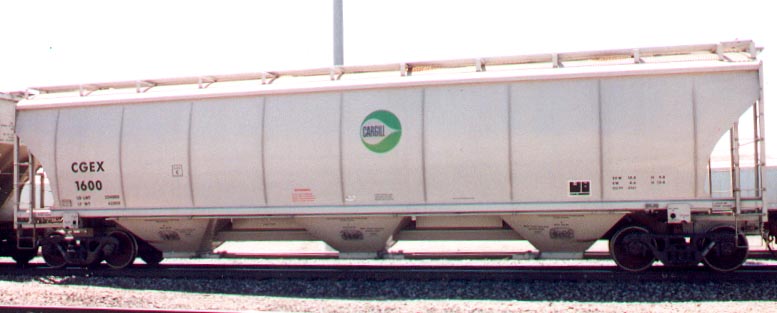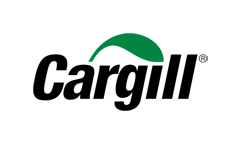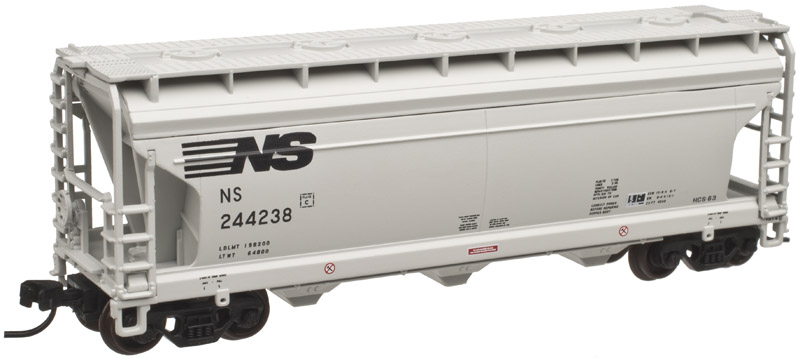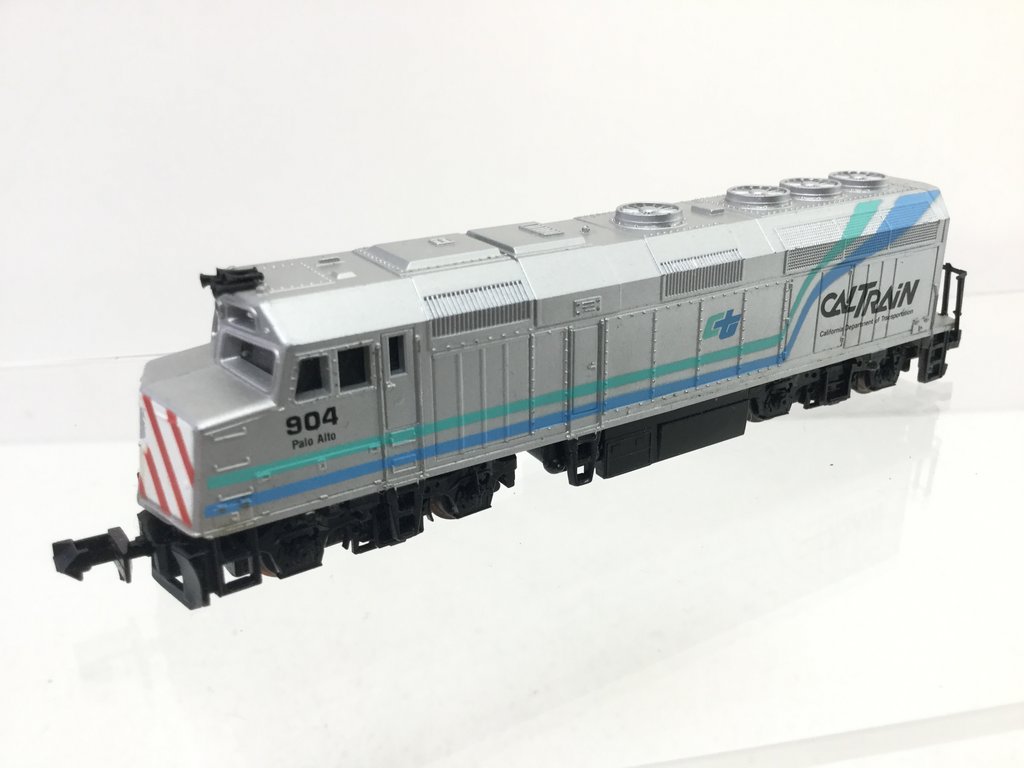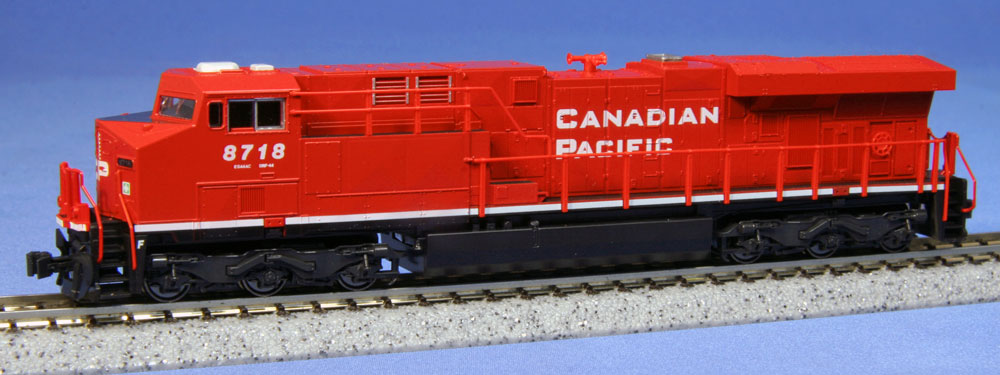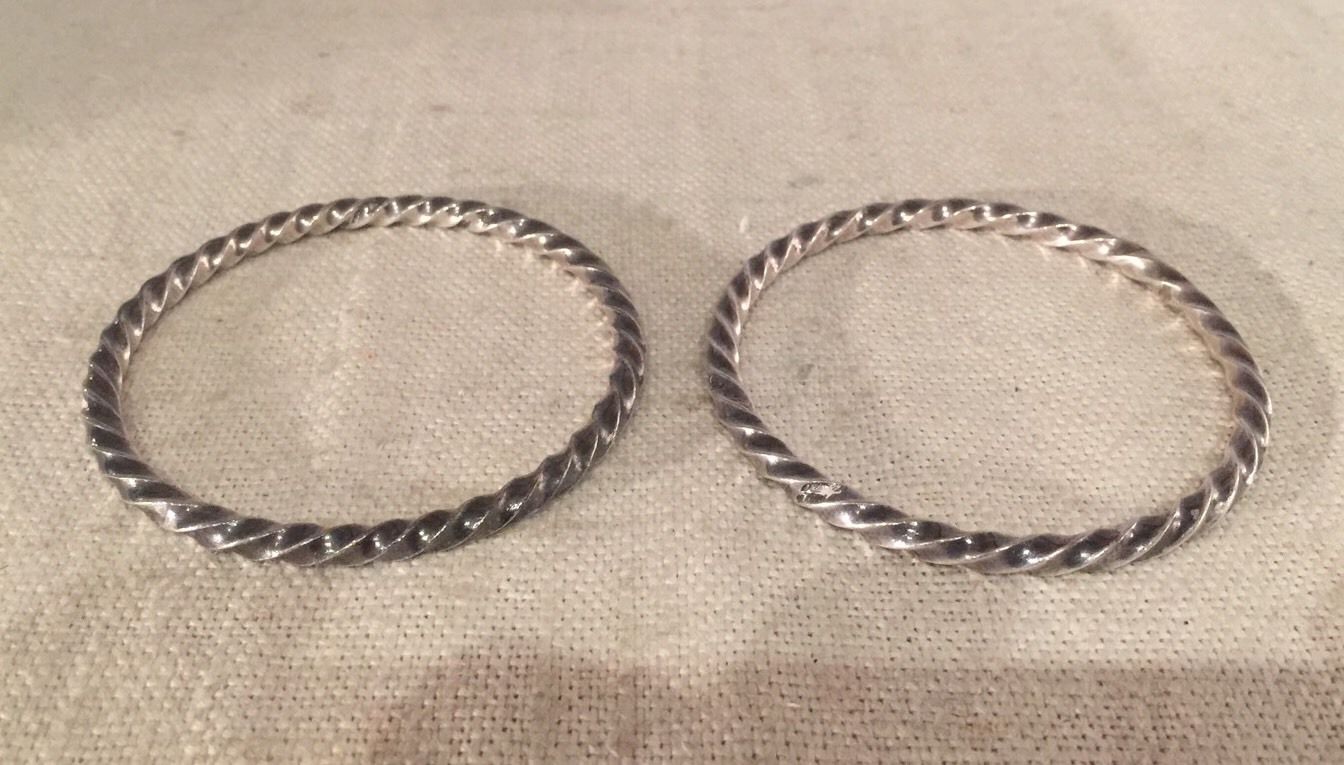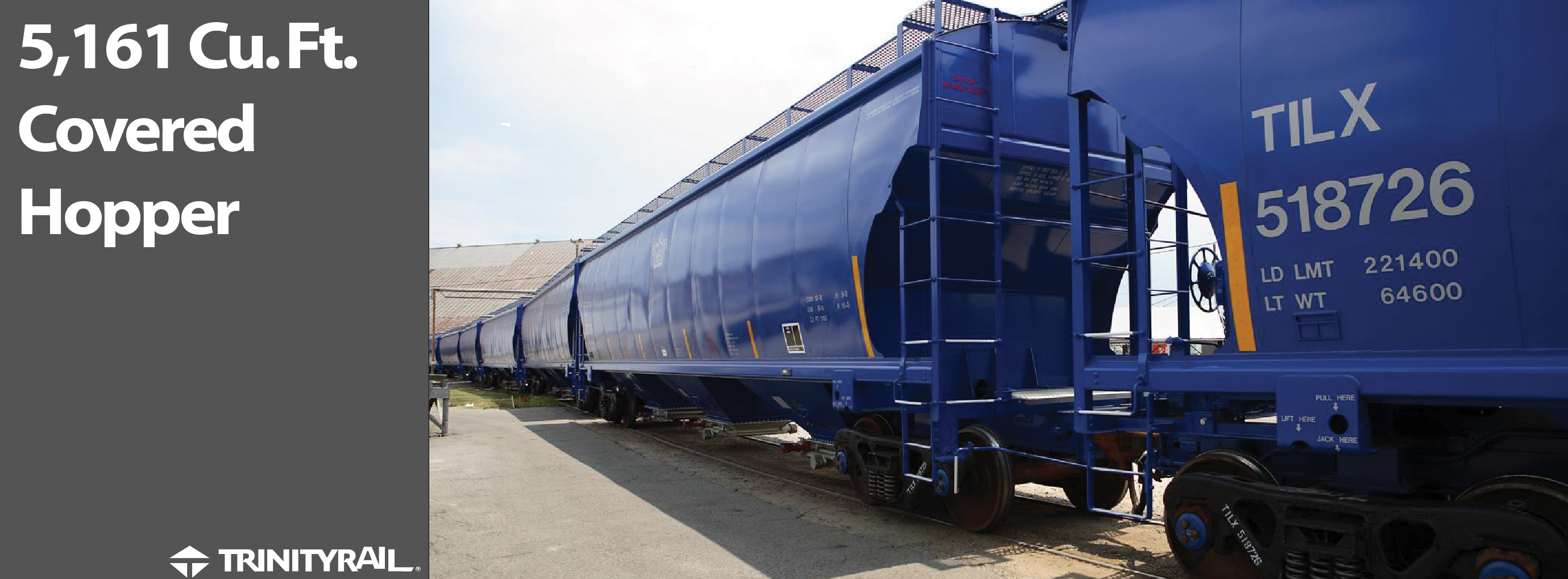LBF Company - 5113 - Covered Hopper, 3-Bay, Trinity 5161 - Cargill - 12 Different Available
| Stock Number | 5113 |
| Original Retail Price | $24.95 |
| Brand | LBF Company |
| Manufacturer | E&C Shops |
| Body Style | E&C Covered Hopper 3-Bay Trinity 5161 |
| Prototype Vehicle | Covered Hopper, 3-Bay, Trinity 5161 (Details) |
| Road or Company Name | Cargill (Details) |
| Reporting Marks | CGEX |
| Road or Reporting Number | 12 Different Available |
| Paint Color(s) | White |
| Print Color(s) | Black, Blue & Green |
| Coupler Type | MT Magne-Matic Knuckle |
| Coupler Mount | Truck-Mount |
| Wheel Type | Injection Molded Plastic |
| Wheel Profile | Small Flange (Low Profile) |
| Item Category | Rolling Stock (Freight) |
| Model Type | Covered Hopper |
| Model Subtype | 3-Bay |
| Model Variety | Trinity 5161 |
| Prototype Region | North America |
| Prototype Era | NA Era V: Modern Diesel (1979 - Present) |
| Scale | 1/160 |
Prototype History:
TrinityRail’s extensive railcar product portfolio has a complete line of covered hopper cars including a 5,161 cubic foot covered hopper car optimized to transport agricultural products, sugar, dry chemicals, or other similar products. In 1995, Trinity Industries introduced a new center-sill design covered hopper car designed primarily for grain transport. The new design was visually quite different - this one featured curved sides versus previously familiar rib-sided design adopted from Pullman-Standard.
Road Name History:
Cargill, Inc. is an American privately held global corporation based in Minnetonka, Minnesota, a Minneapolis suburb. Founded in 1865, it is now the largest privately held corporation in the United States in terms of revenue. If it were a public company, it would rank, as of 2015, number 12 on the Fortune 500, behind McKesson and ahead of AT&T.
Some of Cargill's major businesses are trading, purchasing and distributing grain and other agricultural commodities, such as palm oil; trading in energy, steel and transport; the raising of livestock and production of feed; producing food ingredients such as starch and glucose syrup, vegetable oils and fats for application in processed foods and industrial use. Cargill also operates a large financial services arm, which manages financial risks in the commodity markets for the company. In 2003, it split off a portion of its financial operations into a hedge fund called Black River Asset Management, with about $10 billion of assets and liabilities. It owned 2/3 of the shares of The Mosaic Company (sold off in 2011), one of the world's leading producers and marketers of concentrated phosphate and potash crop nutrients.
Cargill declared revenues of $136.7 billion and earnings of $2.31 billion in the 2013 fiscal year. Employing over 140,000 employees in 66 countries, it is responsible for 25% of all United States grain exports. The company also supplies about 22% of the US domestic meat market, importing more product from Argentina than any other company and is the largest poultry producer in Thailand. All of the eggs used in McDonald's restaurants in the US pass through Cargill's plants. It is the only producer of Alberger process salt in the US, which is used in the fast-food and prepared food industries.
Cargill remains a family-owned business, as the descendants of the founder (from the Cargill and MacMillan families) own over 90% of the company.[8] As a result, most of its growth has been due to reinvestment of the company's own earnings rather than public financing. Gregory R. Page, who is not part of either the Cargill or MacMillan families, is the executive chairman of Cargill. He succeeded former CEO Warren Staley in mid-2007, as Staley reached Cargill's mandatory retirement age of 65, before he in turn was succeeded by Dave MacLennan.
From Wikipedia
Some of Cargill's major businesses are trading, purchasing and distributing grain and other agricultural commodities, such as palm oil; trading in energy, steel and transport; the raising of livestock and production of feed; producing food ingredients such as starch and glucose syrup, vegetable oils and fats for application in processed foods and industrial use. Cargill also operates a large financial services arm, which manages financial risks in the commodity markets for the company. In 2003, it split off a portion of its financial operations into a hedge fund called Black River Asset Management, with about $10 billion of assets and liabilities. It owned 2/3 of the shares of The Mosaic Company (sold off in 2011), one of the world's leading producers and marketers of concentrated phosphate and potash crop nutrients.
Cargill declared revenues of $136.7 billion and earnings of $2.31 billion in the 2013 fiscal year. Employing over 140,000 employees in 66 countries, it is responsible for 25% of all United States grain exports. The company also supplies about 22% of the US domestic meat market, importing more product from Argentina than any other company and is the largest poultry producer in Thailand. All of the eggs used in McDonald's restaurants in the US pass through Cargill's plants. It is the only producer of Alberger process salt in the US, which is used in the fast-food and prepared food industries.
Cargill remains a family-owned business, as the descendants of the founder (from the Cargill and MacMillan families) own over 90% of the company.[8] As a result, most of its growth has been due to reinvestment of the company's own earnings rather than public financing. Gregory R. Page, who is not part of either the Cargill or MacMillan families, is the executive chairman of Cargill. He succeeded former CEO Warren Staley in mid-2007, as Staley reached Cargill's mandatory retirement age of 65, before he in turn was succeeded by Dave MacLennan.
From Wikipedia
Brand/Importer Information:
 The LBF company was based in Roseburg Oregon founded by Fred Becker. LBF was the successor company to E&C Shops, also founded by Becker. LBF also did business under the name USA Plastics. USA Plastics/LBF opened for business in 1993. They produced N Scale models using toolings purchased from the E&C Company. Later, in 1998, LBF folded and the toolings were sold to Hubert's Model RR Manufacturing group which was also located in Roseburg. Hubert had been one of Becker's partners in LBF/USA Plastics. Later, when Hubert's operation folded, the toolings were acquired by InterMountain.
The LBF company was based in Roseburg Oregon founded by Fred Becker. LBF was the successor company to E&C Shops, also founded by Becker. LBF also did business under the name USA Plastics. USA Plastics/LBF opened for business in 1993. They produced N Scale models using toolings purchased from the E&C Company. Later, in 1998, LBF folded and the toolings were sold to Hubert's Model RR Manufacturing group which was also located in Roseburg. Hubert had been one of Becker's partners in LBF/USA Plastics. Later, when Hubert's operation folded, the toolings were acquired by InterMountain.

Item created by: CNW400
on 2020-11-20 13:09:48
If you see errors or missing data in this entry, please feel free to log in and edit it. Anyone with a Gmail account can log in instantly.
If you see errors or missing data in this entry, please feel free to log in and edit it. Anyone with a Gmail account can log in instantly.


